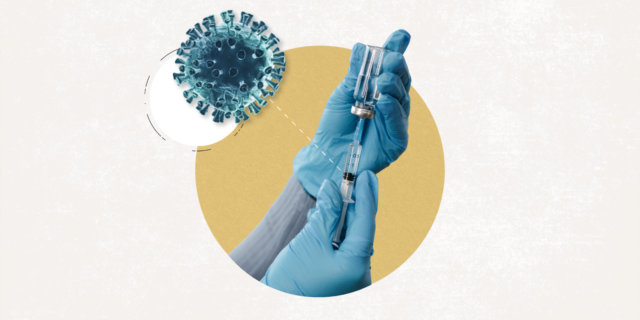New COVID Variant NB.1.8.1 Emerges in the U.S.: Key Information on Symptoms and Vaccine Access
The Centers for Disease Control and Prevention (CDC) has identified the presence of a new COVID-19 variant known as NB.1.8.1 in several regions across the United States. This variant is associated with a significant surge in cases in China, where it was first reported. The earliest instances of NB.1.8.1 in the U.S. are traced back to late March and early April, identified via a screening initiative targeting international travelers at airports.
A CDC spokesperson confirmed that while the agency is closely monitoring the situation and maintains regular communication with global health partners, the number of cases reported so far is too limited to be reflected in the agency’s variant estimates dashboard.
Symptoms Linked to the New Variant
Experts indicate that the symptoms associated with NB.1.8.1 are similar to those seen in earlier COVID-19 strains. According to Subhash Verma, a microbiology and immunology professor at the University of Nevada, Reno, common symptoms include:
- Cough
- Sore throat
- Fever
- Fatigue
Verma also noted that data suggests NB.1.8.1 might not cause more severe illness than previous variants, although it appears to spread more easily. In addition, experts from Hong Kong report that there is no evidence that this variant leads to more severe health outcomes.
Severity and Transmissibility of NB.1.8.1
Dr. Amy Edwards, an assistant professor specializing in infectious diseases at Case Western Reserve University, mentioned that laboratory findings indicate NB.1.8.1 may attach more effectively to human cells, which could contribute to its increased transmissibility. However, it does not imply that infections are more severe.
In areas like China and Hong Kong, rising hospitalizations have been observed. Edwards attributes this surge to standard seasonal patterns rather than the variant being inherently more harmful.
Booster Vaccine Access Changes
In light of this new variant, the Trump administration has announced restrictive measures regarding COVID-19 booster vaccinations. The Food and Drug Administration (FDA) confirmed its plans to continue approving COVID-19 vaccine updates primarily for seniors and individuals with underlying health conditions, including those who are pregnant or have diabetes. However, this will require vaccine manufacturers to undertake significant new clinical trials before distributing them more widely.
As a result, many Americans who are not classified as high-risk may find themselves without access to updated vaccine shots this fall. Verma points out that this decision could affect public health significantly.
Potential Public Health Implications
“While over 100 million Americans may still qualify for vaccination under the new criteria, these changes present additional barriers for broader public access,” Verma explained. Concerns arise over the uncertainty surrounding eligibility and insurance coverage, particularly with the potential for manufacturers to impose high fees on their vaccines.
Edwards expressed confusion about language regarding pre-existing conditions, noting that it remains somewhat vague. Furthermore, it’s unclear which variants will be included in the upcoming vaccine, complicating the landscape even further.
Preventive Measures beyond Vaccination
Despite the ongoing uncertainty regarding vaccine access, experts encourage individuals to employ various preventive strategies to mitigate infection risks. Edwards recommends:
- Practicing proper cough and sneeze hygiene
- Washing hands frequently
- Staying at home when feeling unwell to avoid spreading illness
If someone is slightly unwell but feels capable of engaging in daily activities, wearing a mask is advised to prevent transmission of germs. Edwards highlights that masks are notably effective in protecting others from respiratory illnesses, not just COVID-19.
Current Recommendations on Masking
As cases of the new variant continue to increase, officials in Hong Kong have started encouraging residents to wear masks in crowded areas and on public transport. This move underscores a proactive approach to curbing the spread of the variant.
| Symptom | Description |
|---|---|
| Cough | Persistent cough often reported. |
| Sore Throat | Common symptom among infected individuals. |
| Fever | Occasionally presents in patients. |
| Fatigue | Widespread feeling of tiredness reported. |
As we navigate the complexities of this new variant and the evolving landscape of vaccine access, prioritizing health and adhering to public safety measures remain crucial for mitigating further outbreaks.














